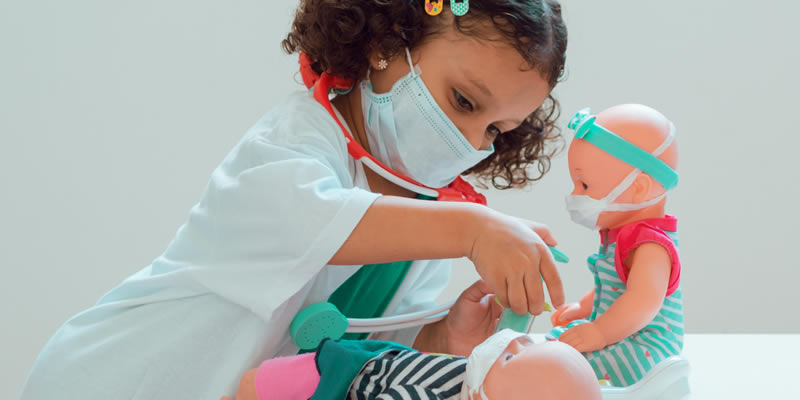Limited screen time, following a structured routine and having a good night’s sleep are the best ways to protect the emotional wellbeing of children during the pandemic, a new study identifies.
Scientists believe that young people have been more at risk of developing a mental health disorder during the COVID-19 pandemic.
Academics from Harvard University assessed the mental wellbeing of 224 young people from Greater Seattle at the beginning of the pandemic and then again six months after.
- New research identifies a rise in mental health disorders among ICU workers during pandemic
- Gaming may improve mental health
Each participant filled in a questionnaire about their social conduct, mental state and pandemic-caused stresses.
Equally, a parent or carer of each participant had to fill in the same survey for their child.
The researchers found that children who had limited screen time and spent more time playing outdoors at the beginning of the pandemic had better mental health than those who spent more time engaging with digital devices.
Additionally, they discovered that the participants who watched fewer than two hours of news per day had a healthier mental state than those who consumed more.
Following a daily routine and get the right amount of sleeping was also beneficial for the emotional wellbeing of the children, the study reported.
- Pandemic causing higher levels of drinking among those with mental health issues
- Higher levels of air pollution can affect children’s academic skills, research shows
The researchers wrote: “Mental health problems increased dramatically among children and adolescents during the COVID-19 pandemic, particularly among those who experienced high levels of pandemic-related stressors including serious illness or death of a family member, significant financial loss, and social isolation.
“A number of simple strategies families engaged in appeared to promote better mental health during the pandemic including having a structured daily routine, limiting passive screen time use, limiting exposure to news media about the pandemic, and to a lesser extent spending more time in nature, and getting the recommended amount of sleep.”
The full set of results can now be accessed in the journal ‘PLOS ONE’.




